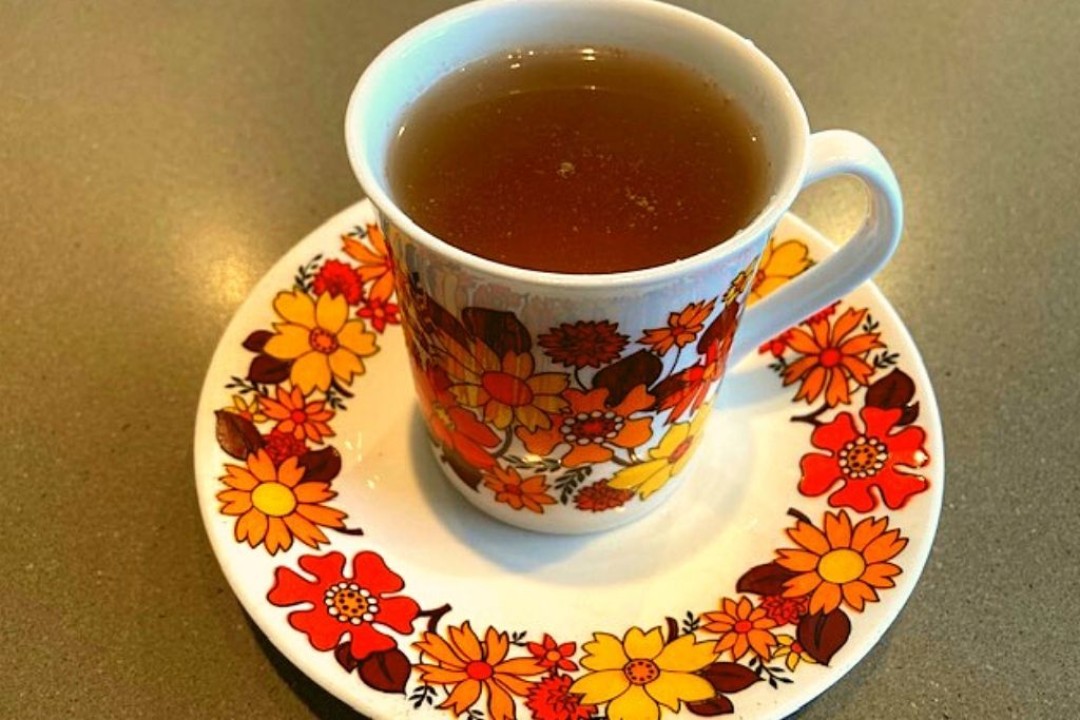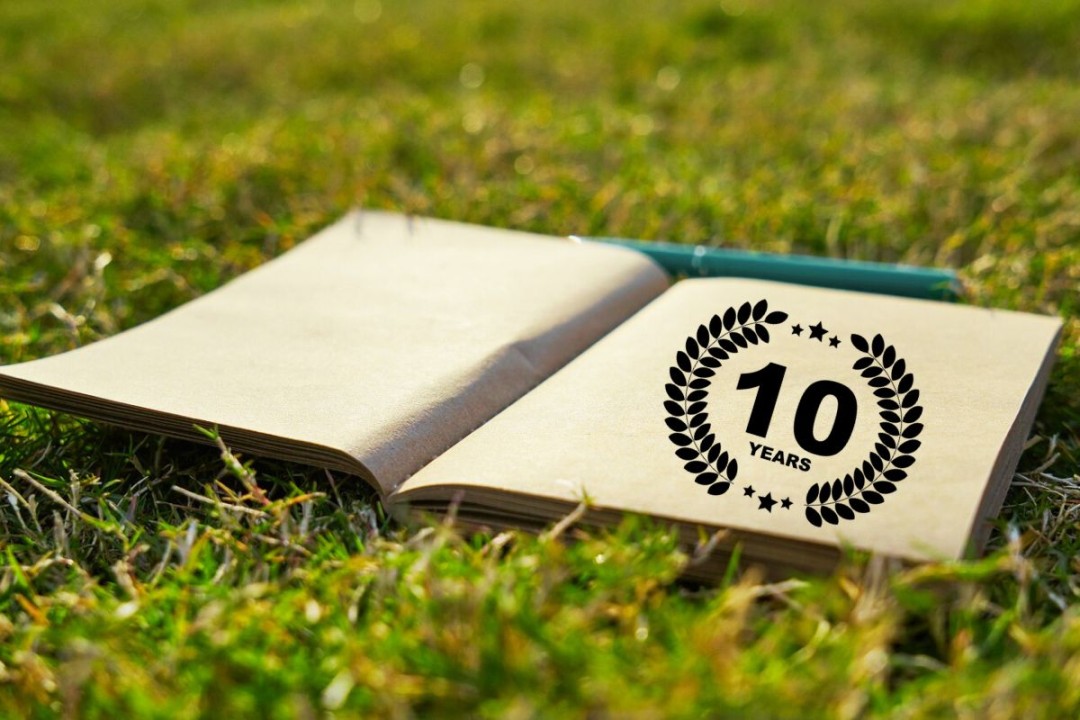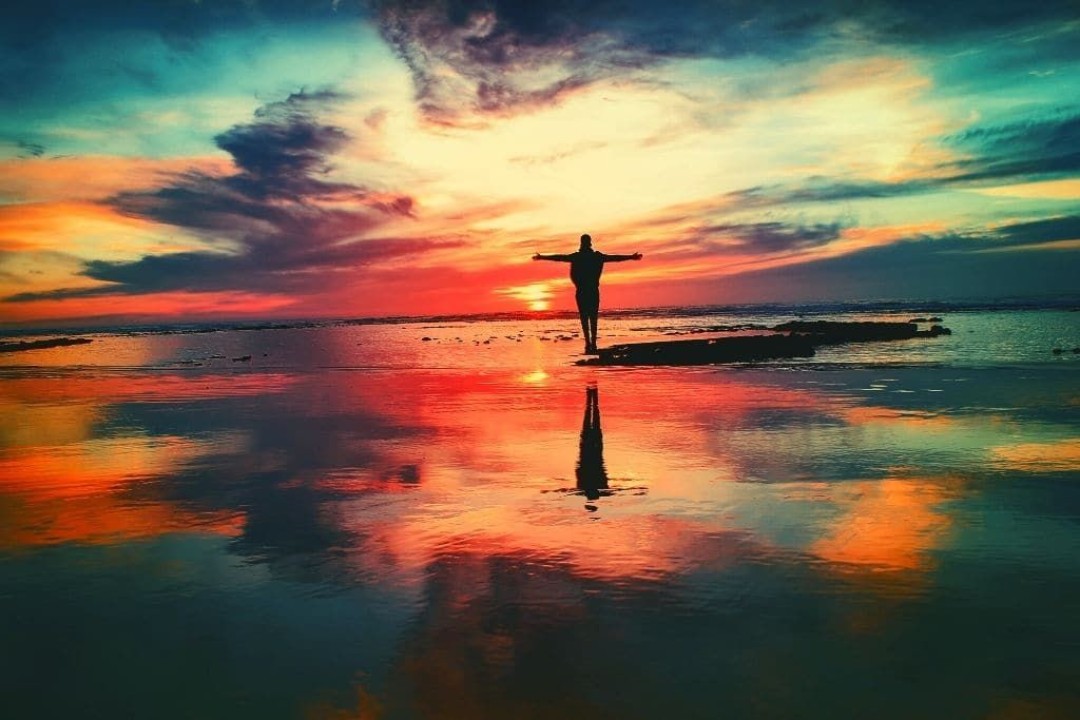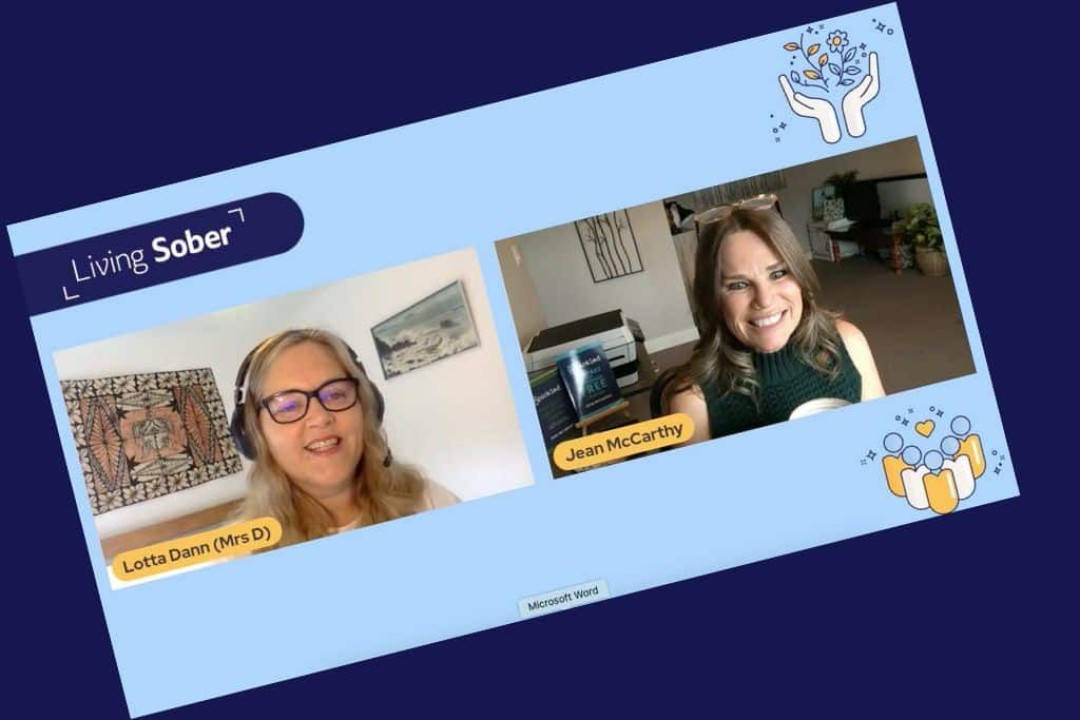Sober Story: Penny
September 19th, 2022 Interviews 19 comments
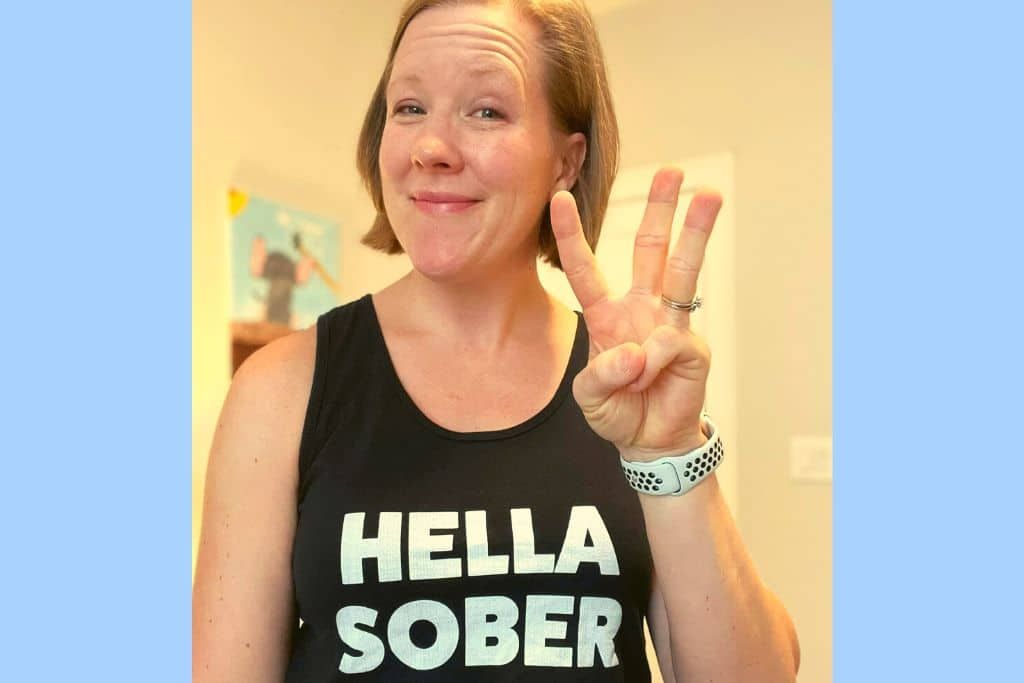
This week’s Sober Story comes from Penny, a 42-year-old living in Raleigh, North Carolina in the US. (Her username here at LS is ‘Lucky Frieda’ or tag as @lupita)
=======
Mrs D: How long have you been in recovery?
Penny: I have been in recovery for a little over three years, since August 24, 2019.
Mrs D: What can you tell us about the last months/years of your drinking before you gave up?
Penny: I felt trapped. I knew my relationship with alcohol was not healthy, but I felt like it was such a part of my identity that I didn’t know how to be me without it. I had a couple of friends who didn’t drink and was in awe of their ability to be authentically themselves without alcohol. I suppose I lacked the self-confidence to assert myself in life without alcohol. Or I thought I did. Looking back, that was only an unhealthy perception at the time. I know now that I am capable of being authentically myself only WITHOUT alcohol. I have always been shy and at the time I thought alcohol was my ticket to engaging in life with confidence. I was wrong.
Mrs D: What was the final straw that led you to get sober?
Penny: I used to teach Les Mills classes at a local gym. I had a gnarly hangover one morning (the hangovers got worse and worse the older I got, even from just a few glasses of wine). I had to teach three classes back-to-back-to-back. I managed to get through, but I knew I couldn’t do that to my body again. Also, the night before, I was reading a bedtime story to my boys. I could hear myself slightly slurring. During my usual 3am insomnia (thanks to the alcohol), I thought long and hard about how my unhealthy relationship to alcohol would affect my boys down the road. I decided I wanted to be a good role model for them, to prioritize my health, and to take back control of my life.
Mrs D: How was it for you in the early days? What was most difficult?
Penny: I’d tried several times to quit before, stringing together a few days at a time, or a couple of weeks or even a month. Every time I’d go back. I wasn’t ready yet. But after that final time, I knew. The timing had to be right. In the early days I felt alone, like I was the only person doing this. I knew that wasn’t true on a conscious level, but I didn’t feel that way. I am not religious, so giving myself over to a higher power didn’t feel right to me. I felt unmoored and floating in a sea of quit-lit and self-help books. I found Living Sober early on and learned I didn’t have to be alone. There were other people like me who were finding sobriety through a patchwork of treatment methods. The most difficult part was redefining myself as a non-drinker. My husband drinks, my friends drink, my parents drink. To “rebel” and separate myself from the fold took a lot of courage. Quitting drinking changed those relationships; it rocked the boat. I understand now that several people close to me felt challenged and my sobriety held a mirror up to their drinking habits. In the beginning this was unsettling for all of us. I had to remain steadfast in resisting the temptation to return to the status quo. This meant upsetting people. As time went on, though, things settled and suddenly I became the authentic sober person I’d so long admired in my sober friends.
Mrs D: What tool or tools did you use to help you?
Penny: Living Sober was the first community I found in my sobriety. I was very ashamed of myself. I was scared and confused and felt alone. Engaging with the Living Sober community helped alleviate those feelings. I took comfort in the anonymity, especially since the site is based halfway around the world from me. It felt like a safe space. The community was welcoming and helpful and non-judgmental. I felt heard and understood. I am an avid reader, so I also read any “quit-lit” I could get my hands on. In particular, Annie Grace’s book This Naked Mind resonated with me because it explains the effects of alcohol on the brain and why we become dependent on alcohol. I was a chronic insomniac. If you know, you know the special kind of hell insomnia is. This Naked Mind explained how alcohol disrupts sleep. About a month into my sobriety, my insomnia lessened, and I sleep soundly most nights now. That has been a motivating factor. I never want to return to those relentless 3am wake-ups. I also read Quit Like a Woman by Holly Whitaker. This appealed to the feminist in me. I learned how Big Alcohol targets women via “mommy wine culture.” I decided I didn’t want to be the victim of a predatory industry any longer.
Mrs D: What reaction did you get from family & friends when you started getting sober?
Penny: I come from a family of “wine enthusiasts.” My husband and I loved to throw parties and boozy events. When I started getting sober, it was like an alien version of me had commandeered my body and morphed me into an entirely different person. My friends and family were shocked. Likewise, this upset our social milieu and forced them to examine their own relationship to drinking. This was uncomfortable for us all. I lost some friends, and I had some disagreements with family. There were growing pains as the authentic (sober) me emerged. No one likes change, and as humans we are wired to resist it. The status quo is comfortable, like a warm blanket. Sobriety bucks the status quo in the beginning. But, eventually, the sober version of me became the new status quo. I am comfortable in my skin now. Those initial discomforts also weeded out people in my life who weren’t healthy to begin with.
Mrs D: Have you ever experienced a relapse?
Penny: In my previous attempts at sobriety, yes, I experienced relapses. I know now that I wasn’t yet ready at those points. Since I quit on August 24, 2019, I have not experienced a relapse. I do not ever want to return to that trapped, insomniac life.
Mrs D: How long did it take for things to start to calm down for you emotionally & physically?
Penny: Physically, it took a couple of months. The headaches in the beginning were terrible. Emotionally, I felt all over the place. Drinking serves as a “pause button” for emotions. I began drinking in my early twenties, so much of my adult life was on pause. In my late thirties/early forties I had to make up for twentyish years of feelings. That was intense. I had to learn to feel as an adult. I had to come to terms with a lot in my life I hadn’t had the courage to face before. I had to grow up and face life head-on.
Mrs D: How hard was it getting used to socialising sober?
Penny: This was a tough one for me. There was a lot of shame around my sobriety. I was afraid people would think I had a problem (I did). I didn’t want to draw attention to it. I wanted to be sober under the radar, which was tough with my family and friends. In the beginning, I would “disguise” drinks (soda water with lime is indecipherable from a vodka soda with lime). Or I would say I was taking a break for health reasons (true). The pandemic began seven months into sobriety, so socializing wasn’t an issue during the months-long quarantine. That made it easier. During that time, I was able to squirrel away my first year of sobriety and the confidence to keep going. During the pandemic, we made a cross-country move to the east coast. I had the rare opportunity to have a clean slate and establish myself as a non-drinker from the outset in our new city. I still sometimes get questions about my sobriety, but I am much more comfortable being honest about it than I was in the beginning. Lifting the veil of shame takes time.
Mrs D: Was there anything surprising that you learned about yourself when you stopped drinking?
Penny: I learned I wasn’t who I thought I was! I always thought of myself as shy and reticent; that only alcohol could give me courage in social situations. I’ve learned that isn’t who I am at all. I have gained more confidence in myself in the last three years than I did in the previous forty combined. I learned that I am quite opinionated and that bucking the status quo is rewarding. I learned that I love to read and write and try new things. I learned that I am discerning and thoughtful and don’t tolerate any bullshit in my life. I’ve learned to use my voice and not to demure when tough situations arise. I can face challenges head-on instead of pushing the “pause button” or numbing out. I learned that I am actually quite capable of this thing called life.
Mrs D: How did your life change?
Penny: The short answer is immeasurably. I wasn’t living before, not really. I was adhering to the status quo and going through the motions, doing what was predictable and what I thought was expected of me. I never stopped to examine or challenge or question things – until I quit drinking. Sobriety is the clear lens though which I look at life now. I realize that I have a good mind and that it’s okay to speak up and call things out. Sobriety gave me a voice.
Mrs D: What are the main benefits that emerged for you from getting sober?
Penny: First and foremost, sobriety gave me health and happiness. From that core (I call it H squared), a network of benefits has sprouted. I had chronic hypertension, which is now gone. I had chronic insomnia, which is also now gone. I had bouts of depression and anxiety, which are significantly fewer and far between. I am a better mom and wife and sister and daughter and friend. I’m present in my life. I don’t go through the motions. I think critically about the world around me and challenge injustice. I care about myself. I and confident and proud of who I am. Shame is no longer a primary emotion. Every day a new benefit sprouts from my H squared core. I am grateful.
Mrs D: Would you do anything differently given the chance to go through the process again?
Penny: Hindsight is always 20/20, isn’t it? If I were to go through the process again, I would use my voice earlier. There is so much shame and stigma associated with sobriety. The more of us who use our voices, the less power shame and stigma have over the process. The less shame, the more people will seek out sobriety. I think we are part of a movement that’s gaining momentum. Being brave, using our voices, and peeling back that veneer of shame will empower others to seek sobriety. I wish I would have realized this sooner.
Mrs D: What advice or tips would you have for those who are just starting on this journey?
Penny: How do I not sound trite? I could tell you it’s worth it (it absolutely is!); I could tell you it gets easier; I could tell you you’re worth it; I could tell you you’ll be proud of yourself, and it will improve your life immeasurably. But you’ve heard this all before. So, I guess I’ll tell you to trust yourself. Listen to your gut. You’ll know when it’s the right time. And the right time will come. Be patient and forgiving of yourself. You’re a human living a fallible existence, just like the rest of us. You’re not alone. You’re going to eff up. We all eff up. That’s what makes us human. But we humans are also amazingly resilient, strong creatures. We can do hard things. So have a little confidence in yourself. If you don’t have confidence right away, fake it until you make it. Pretend you are the world’s best actor, and you are going to BE A SOBER PERSON. Try it on, see how it feels. You’ll start to feel more comfortable in that suit the longer you wear it.
Mrs D: Anything else you’d like to share?
Penny: If you’d asked me three and a half years ago if I ever thought I’d a) be sober, and b) be writing a public sober story about it, I’d have laughed in your face. Okay, there would be, like, one percent of me who might have believed it, but the other 99% would, like, hell nah! I am proof that anything is possible. We are capable of more than we know; it only takes a little confidence to set you on your way.
Continue reading
Lemongrass & Ginger Tea
This tea is just the ticket when you feel like something nourishing and warm, and I truly do believe that the act of making a drink like this is as restorative as the drinking of it.
August 14, 2020 – 3 comments
10 Years of Living Sober - A poem for us
A special anniversary poem from one of our long-time members!
August 6, 2024 – 6 comments
The Fear
The biggest thing I always want to say when asked about my sobriety is that living alcohol-free is not the boring-ass disaster I feared it would be.
February 8, 2021 – 15 comments
Sobriety Chat: Jean
Listen to podcaster and writer Jean talk about her new book, Take Good Care, and how unleashing her creative energy has been one of the many joys of quitting drinking.
February 10, 2023 – 8 comments
